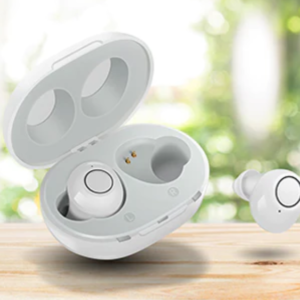Brand manufacturers and supermarkets have been arguing about price adjustments and conditions for months. According to Edeka boss Markus Mosa, the supermarket giant is no longer supplied by 17 large corporations. This has significant implications for consumers.
“At the moment we have 17 companies that refuse to supply us,” said CEO Markus Mosa at the presentation of Edeka’s annual balance sheet. The background is price disputes between manufacturers and the supermarket giant.
The groups from which Edeka is currently not receiving any goods are Procter & Gamble, Mars, Pepsi, Henkel, Schwartau and Unilever.
The list includes candies like Airwaves, Balisto, Bounty, Celebrations, HubbaBubba, M&M’s, Malteser, Mars, MilkyWay, Skittles, and Snickers, as well as dog food brands like Cesar, Chappi, Frolic, Pedigree, and Whiskas. Products from Ebly and Mirácoli are also missing.
“It is clear that the branded goods industry is maximizing its results and prefers not to supply.” Mosa spoke of clear double-digit growth for these groups. “With us, you can assume that retailers are successful if they have a return on sales of more than four percent.”
“Pampers” bottleneck at Edeka?
In addition to products from Mars, Pepsi and Schwartau, products from Procter & Gamble will soon no longer be found in stores. The US group owns, among other things, the detergent “Ariel”, the feminine hygiene products “Always”, the fabric softener “Lenor” and the baby diaper and wet wipes brand “Pampers”.
For many parents, the lack of “Pampers” products is a particular challenge. There are only a few alternatives in this product category in particular.
Edeka itself reacted and imposed an order freeze on a total of four companies in order to increase the pressure. Among them is Procter & Gamble. This measure has no direct impact on consumers. Due to the good stock levels, this has not yet had any impact on the inventory in the shops, but is more of a warning shot, according to Mosa. From June, however, the situation could change.
This is the reason for the delivery stop
In the first quarter of the year, several brand manufacturers increased the prices for their products. According to them, production costs have risen sharply. Companies have to spend more money on staff, energy, packaging, transport, storage and raw materials. At Edeka, Rewe, Aldi Süd, Aldi Nord, Lidl and other retailers, they pass on the increased costs directly to customers.
However, the brand manufacturers cannot simply raise the prices, after all, retailers have to plan accordingly. That is why negotiations on terms and conditions between dealers and manufacturers take place every year. This involves prices, delivery quantities, discounts and also the placement of the goods on the shelf.
Negotiations take place either at national level or on a broad front via purchasing alliances, which usually include several countries. In September 2022 it became known that negotiations between the US manufacturer Mars and the two supermarket giants Rewe and Edeka had stalled. Since the companies could not agree, the group stopped deliveries. The supermarkets reacted with delistings. The products are sold off and the branches are not allowed to order new goods.
Does the delivery stop affect my purchase?
In many cases, consumers have to switch to alternatives at Edeka. Edeka fills empty shelf space from brands that no longer supply goods with competing products.
Our tips: Look more often for offers in the weekly brochures of the supermarkets, use apps, vouchers and also no-name brands to exploit the greatest savings potential.
Weekly brochures are often mailed out between Thursday and Saturday. In some regions you can also find them in your local city or weekly newspaper. Be sure to remove any “No Ads Please” stickers from the mailbox.
This article first appeared on FOCUS online.





